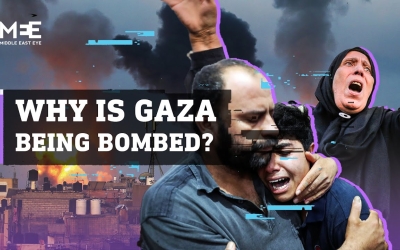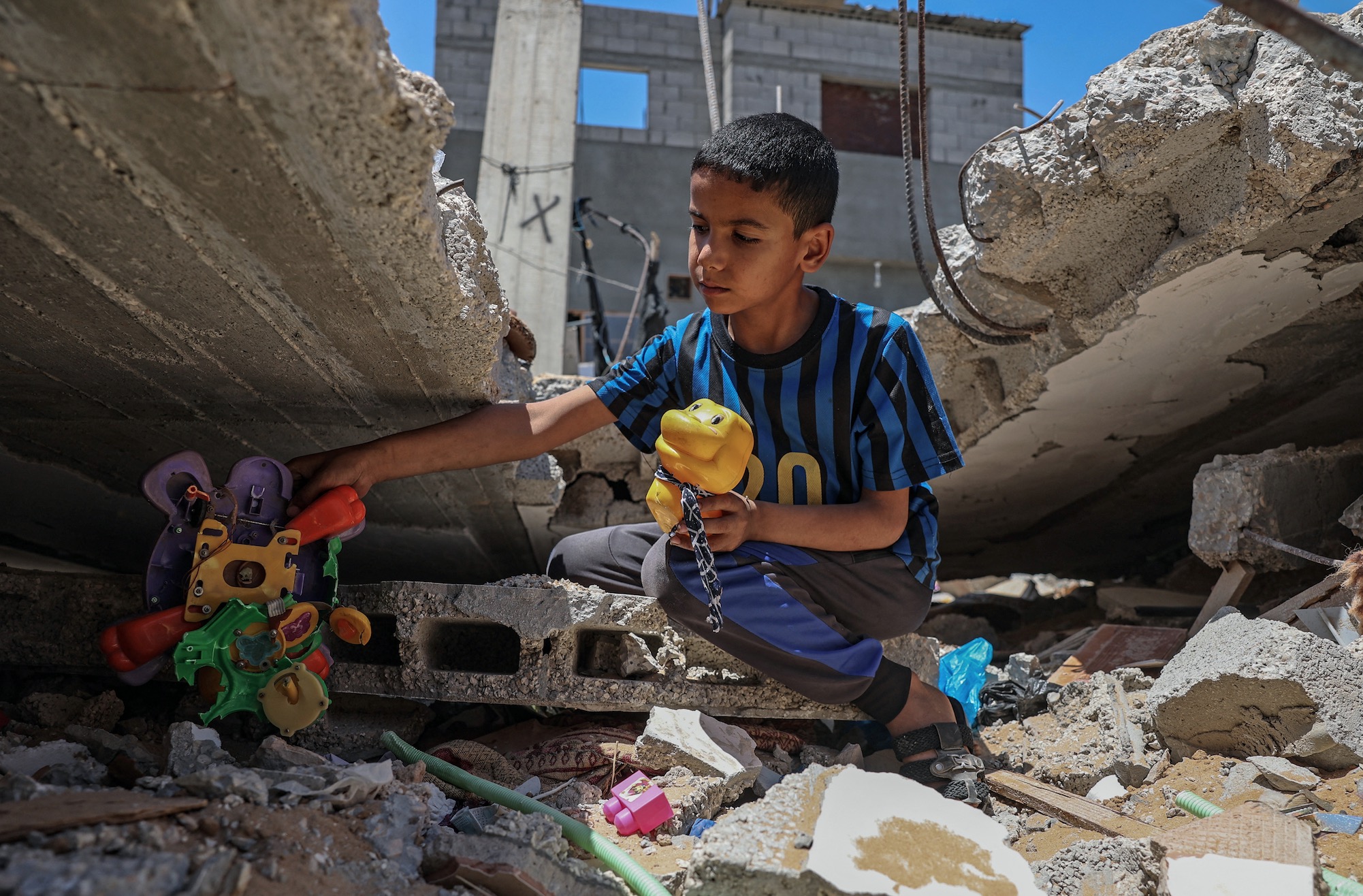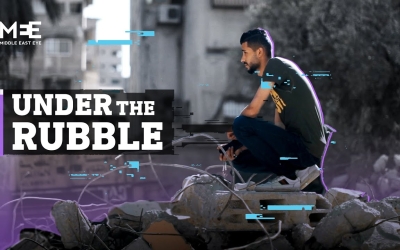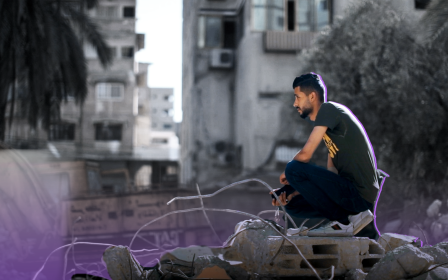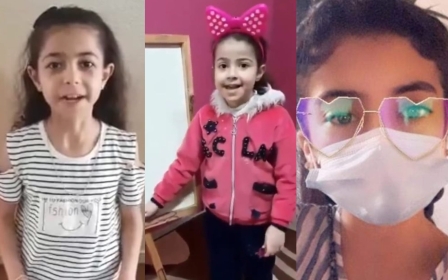Gaza: Nine out of ten children suffering from PTSD after Israel's May offensive
The Israeli offensive on the blockaded Gaza Strip in May has had a far-reaching and devastating impact on children's wellbeing, according to a new report by Euro-Med Human Rights Monitor.
The organisation surveyed 530 children from across the Gaza Strip, noting evidence of changed behaviour, and found that nine out of ten children surveyed suffered from some form of conflict-related post-traumatic stress disorder (PTSD).
New MEE newsletter: Jerusalem Dispatch
Sign up to get the latest insights and analysis on Israel-Palestine, alongside Turkey Unpacked and other MEE newsletters
The report also warned that some 2,500 pregnant women due to give birth in the next three months could also suffer from complications in childbirth likely as a direct or indirect effect of the attack.
The findings come after an 11-day Israeli military operation on the Gaza Strip in May, which resulted in the killing of at least 248 Palestinians and the destruction of a number of buildings, including schools, medical centres and media offices.
The hostilities between the Israeli army and the Palestinian Hamas movement erupted after Israeli authorities cracked down on Palestinians protesting the planned expropriation of several families in the Jerusalem neighbourhood of Sheikh Jarrah and armed forces cracked down on worshippers at al-Aqsa mosque.
The Euro-Med Human Rights Monitor said the Israeli air strikes, many of which hit densely populated residential neighbourhoods, led 241 children to lose one or both of their parents, while 5,400 children lost their homes.
Over 42,000 children have had their homes partially damaged as a result of the violence.
Shaima Khalifa, a mother surveyed by the rights organisation, described noticing changed behaviour in her son following the Israeli offensive.
“He lost consciousness upon seeing his brother lying on the ground, and since that day, he has been behaving strangely, suddenly screaming in anger, laughing, or crying all day for no reason. When he sleeps, he keeps shouting his brother’s name throughout the night,” she said.
Mariam Dawwas, a field researcher for Euro-Med, said that the team had documented hundreds of cases of air strikes hitting civilian homes.
“Today, my three-year-old daughter Sophie and I are still trying to live normally while going through PTSD like the vast majority of Gaza residents,” she said.
“There is nothing necessary in inflicting such a real tragedy upon more than two million people, half of whom are children, nor in destroying entire residential towers and targeting whole families in their homes,” she added.
The bombardment has also caused at least 470 children to be injured, a number of which may result in permanent or long-term disabilities, according to the findings of the report.
During the May offensive on Gaza, 11 children who had been receiving trauma counselling from the Norwegian Refugee Council (NRC) were killed by air strikes.
The NRC said the children were aged between five and 15 years old, and were killed while sheltering inside their homes.
Middle East Eye delivers independent and unrivalled coverage and analysis of the Middle East, North Africa and beyond. To learn more about republishing this content and the associated fees, please fill out this form. More about MEE can be found here.


